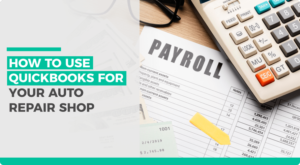How to start an auto repair shop? What do I need to open a mechanic shop? If you ponder these questions and aspire to become the proud owner of your own automotive repair business, this article is for you.
Business planning, legal work, finance and accounting, permits, hiring, and marketing can seem intimidating, but we’ve broken out the key workstreams below to help you understand how to open a mechanic shop and what do you need to open a mechanic shop. You got this! Here’s how to start an auto shop!
1. Put together an auto repair business plan
Before anything else, you should create a business plan for your car repair shop that answers the following questions:
- The mechanic services you will offer: Are you going to be a specialist shop (e.g. transmission, engine repair, or auto body repair), or offer general repair and maintenance (e.g. oil changes & multi-point inspections)? Will you differentiate yourself by focusing on specific vehicle makes, or anything that runs on four wheels? Small business owners often have limited capital and must consider the cost of specialty tools and at least a diagnostic machine for the types of services they choose to offer. Many shops specialize in a single field before diversifying into other categories.
- Location: Shop owners must consider several factors when deciding where to open their auto mechanic shop; proximity to your target market, accessibility & visibility (for walk-ins), the rent, etc. This is probably going to be the most important decision you’ll make, so weigh all the pros and cons carefully. It’s also important to decide whether you will have your own car repair shop or rent one out. On the other hand, you may take location out of the equation by starting a mobile mechanic business.
- Upfront costs: Aspiring auto repair shop owners need $50,000+ to start their car repair shop. The breakdown is summarized in the table below:
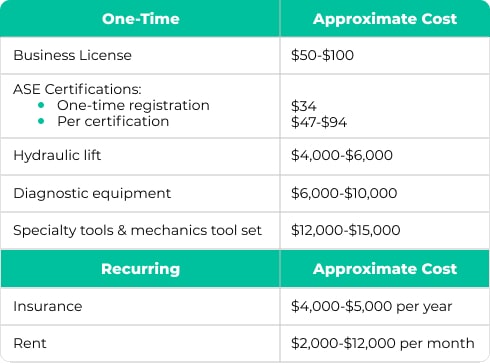
- Funding sources: How will you raise money? Will you dip into your savings to set up your garage? Is a bank loan an option? (Tip: try negotiating credit terms or a hire-purchase deal with the heavy-duty equipment suppliers). Starting a mechanic shop or an auto repair shop requires capital. It’s important to know the startup costs of a car repair shop before you dive in head-first. A lack of financial planning has seen many small businesses fail within the first few years since their establishment.
- Competitors: Drive around or look them up online—while a little healthy competition never hurts anyone, you should definitely be aware of who your competitors are and understand how they affect the potential of your own business. Having this information can give you an advantage in your auto repair shop marketing too. It’s easier to distinguish your shop if you know what you’re up against.
- Target customers: This ties in to the type of auto repair services you plan on offering—for example, independent shops looking to perform custom work on luxury cars, your target market will be very different from that of regular repair & maintenance work on ordinary cars. Your car repair shop needs to have a defined audience and a sound marketing strategy to attract new customers!
Build a thoughtful auto repair business plan. Ask your colleagues to review the plan and share their input with you. Use attention to detail and avoid mistakes that will set you back after planning is complete.
Remember that a business plan isn’t set in stone, but acts as a guide to give you an estimate of where your mechanic shop should be in a certain amount of time.
It’s also important that you’re realistic about your total cost and revenue so that nothing surprises you when starting your automotive business. It’s also important to factor in your automotive repair shop insurance costs too since this investment can protect your finances. Now that you have a solid auto repair shop business plan, it’s time for the next steps.
2. Form a legal entity
After finalizing your business plan, the next step is getting legalities in order. Every new venture needs to obtain business licenses specific to the state it operates in. Establishing your repair shop as a legal entity is no exception.
A limited liability company (LLC), sole proprietorship, partnership, and corporation are the options available for the legal structure of your repair shop—each has its advantages and disadvantages in terms of taxation.
An LLC or a corporation are the best options for auto repair businesses as these will protect the owner from bearing damages out of their personal finances in the case of a lawsuit. You can register the repair shop under an LLC on your own, at minimal state LLC costs, or hire a professional LLC service for a small fee.
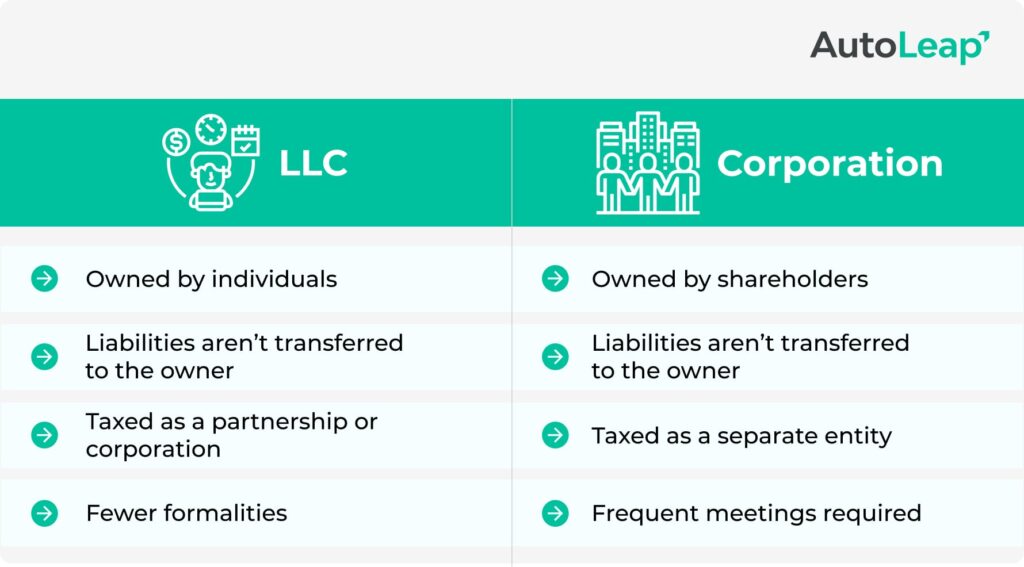
3. Secure financing
To start a car repair shop, you’ll likely need a loan to help pay for equipment, location acquisition costs, employee salaries, insurance coverage, etc. Before providing a business owner with a bank loan or investing in a new business, the first question is always: “Will you be able to pay us back?”
A common source of financing among car repair shops is Small Business Administration (SBA) loans. Lenders offer more flexible terms and better interest rates for SBA-backed loans as they are insured by the Federal Government. If a borrower defaults on their loan, the SBA steps in and pays a guaranteed amount to the bank to help minimize the loss. As a mechanic shop owner, you should know your options for SBA loans. There are two types:
SBA 7(a) Loans: This loan will account for shop equipment you may require. It will also enable you to refinance your debts as needed.
SBA 504 Loans: This loan enables you to buy items that fall in the fixed assets category. Examples include property for the shop location or new equipment.
Find other SBA loan options here.
4. Obtain permits & licenses
You need a business license and certain permits before opening a mechanic shop; businesses can be subjected to heavy fines, or even sealed, if these regulations are not followed. All this can be avoided if you pay the state fees to get the right licenses.
For instance, since every automotive repair shop operates out of garages, a Certificate of Occupancy (CO) is mandatory as it proves that all legal and safety regulations have been met by the garage and it is fit for people to work in/customers to visit.
Car repair shops must follow mandatory federal and state-level environmental regulations as well. You can find the complete checklist here.
5. Open a business bank account & get a credit card
A dedicated business bank account and credit card can help protect your personal assets in case of bankruptcy or if any legal action is taken against your mechanic shop.
This is referred to as the “corporate veil”, a legal construct that protects your personal assets (home, car, and other valuables) if anything happens to your company.
With a business account, you are also eligible for better interest rates, higher lines of credit, and other benefits. For example, with a dedicated business credit card, your company can establish a credit history which can be useful when trying to raise more money in the future.
6. Setup business accounting
Regardless of the type of car repair shop you run, keeping a detailed and organized history of your income, expenses, assets, and liabilities is critical to understanding your business’s financial performance over time. It will also help you file annual taxes faster because your accounts would already be in place!
AutoLeap’s QuickBooks integration simplifies your accounting with the automated flow of transactional data, saving you a lot of time and hassle.
7. Get business insurance for your mechanic shop
Obtain insurance coverage to protect your shop from any unforeseen incidents, such as natural hazards or accidents involving customers and staff members. Similarly, commercial property insurance is a must-have for all auto repair shop owners to protect their business assets.
General Liability Insurance is the most common coverage that small businesses can take advantage of. If you’re unsure about what risks may be involved or which insurance type fits your needs best, start with this basic insurance program.
Workers’ compensation coverage is another option that protects your business against employee lawsuits; e.g. if a mechanic gets injured while working on a car. There are several types of mechanic shop insurance for you to choose from. Pick the one that best suits your shop’s needs.
8. Hire the right people
You’ll need to hire the best mechanics and front office staff to provide the best experience that encourages repeat business from your existing customers. Finding the right employees should be a top priority for you, as auto repair technicians will influence how well your business performs. To remain profitable, it’s important to provide solid customer service and deliver results, for which it might be a good idea to higher people with good work experience and an attitude to learn and grow.
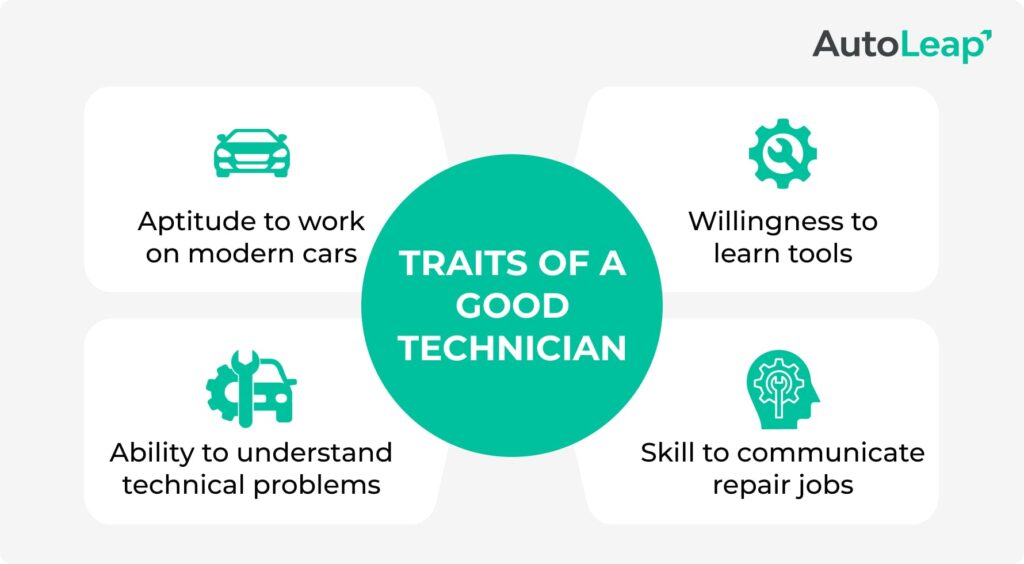
9. Define and introduce your brand
If your services are more expensive than others in the area because you prioritize quality over quantity, make that your primary communication to potential customers. A strong and clear brand identity will set you apart.
Build your brand
To build a brand, auto mechanics need to network with any other car repair business that may require their services. Partner with local taxi companies or a limousine service, both of which would need the services of reliable auto repair shops for regular vehicle repair and maintenance. Alternately, you may want to market your auto repair shop on social media.
Offer custom services
Consider unique offerings. For example, your auto repair shop could potentially be the only one in a 10-mile radius that offers custom installations for stereos and alarm equipment or specializes exclusively in a specific car make. One of the best automotive repair shop advertising strategies is word-of-mouth marketing—make customers talk about how special your offerings are.
10. Start selling
Your big day is here—hold a grand opening where potential customers in the area can stop by and see what differentiates you from the competition. You could advertise promotional discounts for the first week (or month) or provide maintenance services for free (e.g. a 5-point inspection) to get customers into the door. This is where marketing and scheduling features in auto repair management software can really make a difference.
The next step is to enter the digital market and take your business online—but let’s face it, asking other businesses to hand out your flyers and placing ads in local papers just doesn’t cut it anymore, especially when you repair cars. Digital advertising helps create targeted awareness for your brand—think of it as a loudspeaker that lets your target audience know you’re open for business. That’s there is to know about how to start a mechanic shop.
After months of careful planning, you’ve finally started your own auto repair shop—now it’s time to listen to automotive industry leaders and take your automotive business to the top.
Yes, you will need to establish your shop as a legal entity. You can register the shop as a limited liability company (LLC), sole proprietorship, partnership or a corporation.
Auto repair shops can be very profitable, but results vary. AutoLeap’s 2022 State of the Auto Repair Industry Report found that 53% of surveyed shops generated $500,000 or less in 2021 revenue. Upside does exist, with 28% of surveyed shops reporting 2021 revenue figures of $1 million or more.
Running a successful car repair business will require a lot of strategic planning. You will need to:
- Secure a location
- Pay up-front costs
- Obtain licenses
- Securing necessary funding
- Buy shop equipment
- Hire certified technicians
- Build your brand
- Market your services
The price you pay will vary depending on the type of business you open. But on average, you can expect to spend well over $100,000 to open a car workshop. Costs include garage rental space, administrative expenses, auto repair equipment and tools for your technicians.
To determine your shop’s labor cost, you will need to consider a number of factors. These factors include the number of employees you plan to hire and your total labor budget. You should also factor in other costs like health benefits and bonus structures.
Auto Repair Shop Management Software
AutoLeap is a powerful all-in-one auto repair shop software that helps to keep complete track of your business – from scheduling appointments to managing technicians and generating invoices.
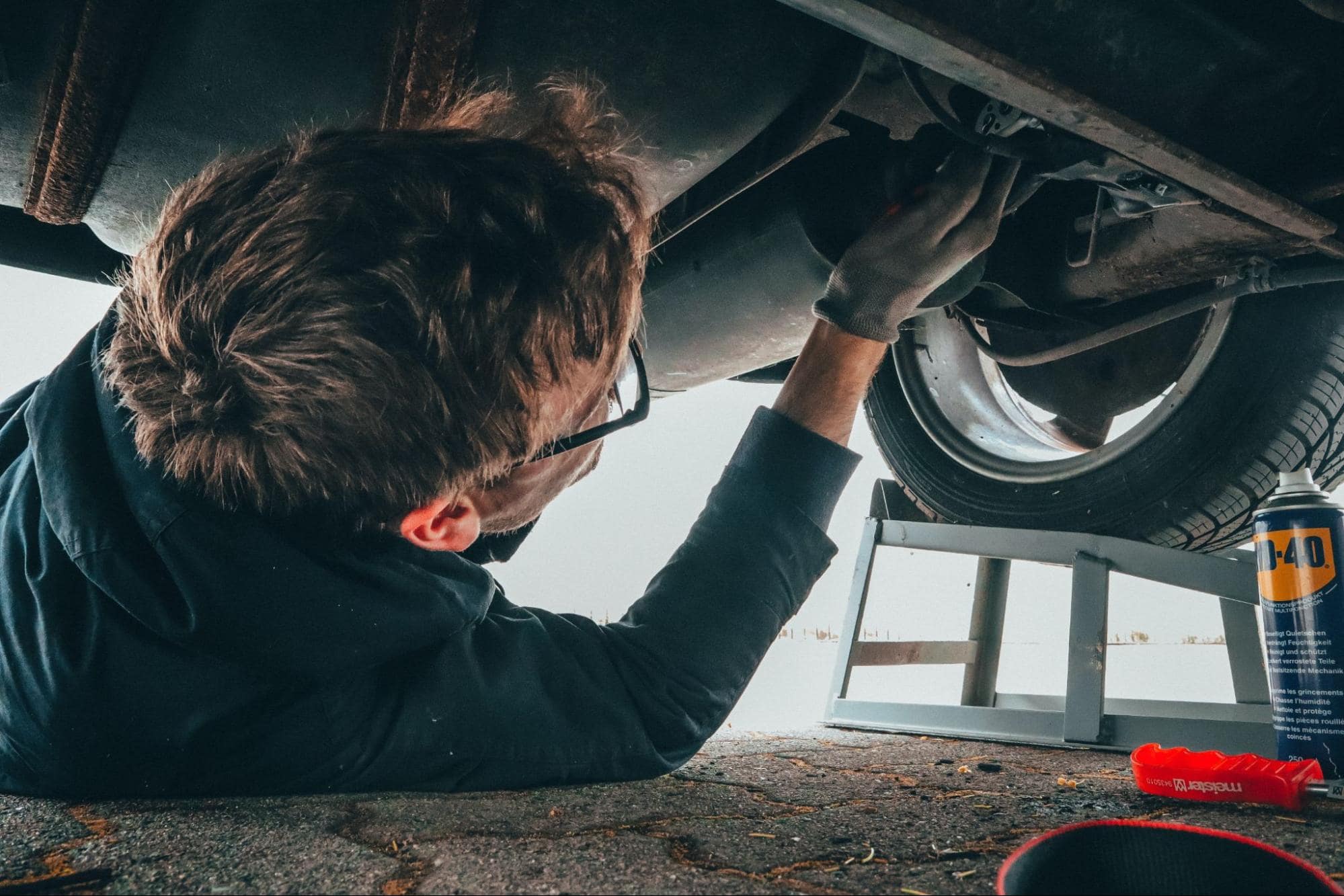
 Demo
Demo
